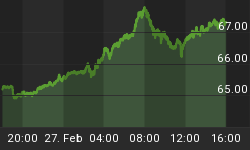Worldwide the economic news is worrying. Finance Ministers and central bankers remain loath to admit it. They resemble underperforming fund managers who insist that it's the stock market that's got things wrong.
This was underlined by Alan Greenspan's talk at Jackson Hole. As the US economy was clearly not in good shape, he should have told us what should be done. Instead he pleaded that he wasn't to blame.
The search for excuses impedes policy. Past mistakes can't be undone, but they must be recognised. When policy makers are anxious to believe that they haven't made mistakes, they become over-optimistic. This is the situation today and it adds to the risk of recession and deflation.
If the world's central bankers and finance ministers were all replaced tomorrow, economic prospects would improve. No improvement in ability would be needed. It is just that the new arrivals would not carry the baggage of past error.
Nonetheless, we had some good news last week on the policy front, with the Fed's cut and the Republican's mid-term victory.
The Fed should have cut six months ago, but it is better late than never. This is not because the cut will necessarily do anything for the US economy. But the sooner it was made, the sooner we will know if it does.
If America follows in Japan's footsteps and finds that zero interest rates can't cure a post-bubble hangover, then tax cuts will be needed. With control of both Houses of Congress, the Republicans should now have much less difficulty in getting these through.
Tax cuts are more likely to boost the US economy than lower interest rates. Investment is unlikely to pick up when there seems to be spare capacity for almost everything almost everywhere. So the key to the US economy is consumption.
Cuts in interest rates have kept household savings down, but it has probably been the fall rather than the level that has been crucial. Included in the rate of interest paid on most US mortgages is the hidden cost of an option which allows for early repayment. As interest rates have fallen, this option has become very valuable and householders have been busily cashing it in.
It looks as if we must be near the end of this process. Fannie Mae, at any rate, must hope so because it has been underwriting this option. As the company is too big to buy offsetting options in the market, it has been taking the risk on its own book. With interest rates falling so fast, this has been increasingly costly and Fannie Mae has discovered a "duration gap" between its assets and liabilities.
Part of the fun in economic forecasting is that it's so difficult. It resembles horse racing, as the even bets win more often than outsiders but sometimes there are no clear favourites.
This is the situation today. Punters have very little to go on. We have only had five Wall Street bubbles in the last 100 years and so econometricians have very few "observations" on which to base their judgements.
The past is never a reliable guide to the future, though no one has yet suggested a better one. It's also a variable guide and conditions today are predictably unpredictable.
This means of course that the Fed's latest cut might not be necessary or it might even work. But this still doesn't excuse the delay and even less does it excuse the blind obstinacy of the ECB.
A central part of policymaking should not be the expected outcome, but the risks. It is surely obvious that the risks of deflation today are, at least on a one year view, way ahead of inflation. It is surely bad news, and not just for Europe, that the ECB refuses to recognise this.















